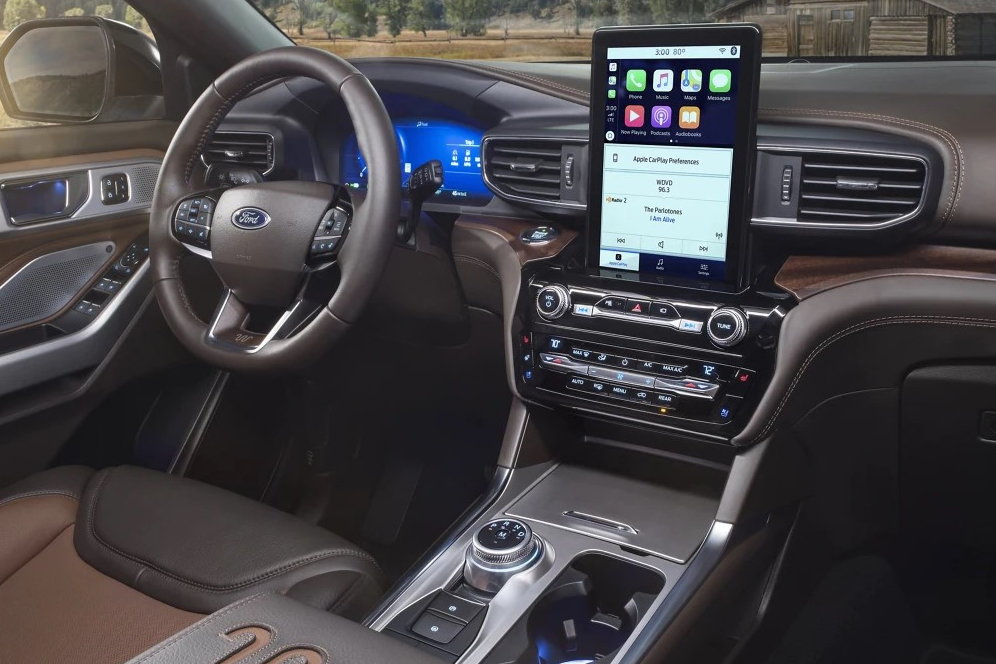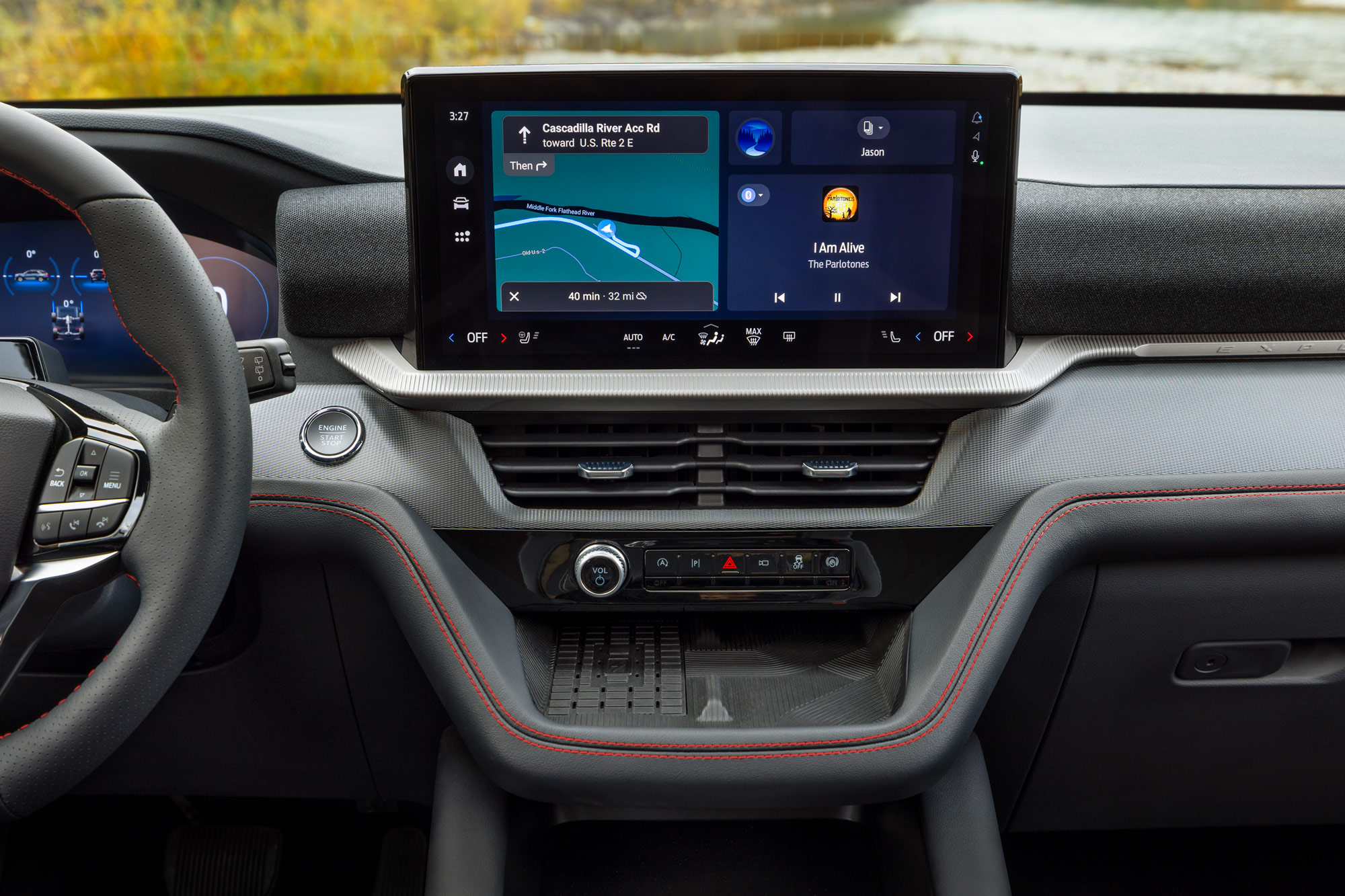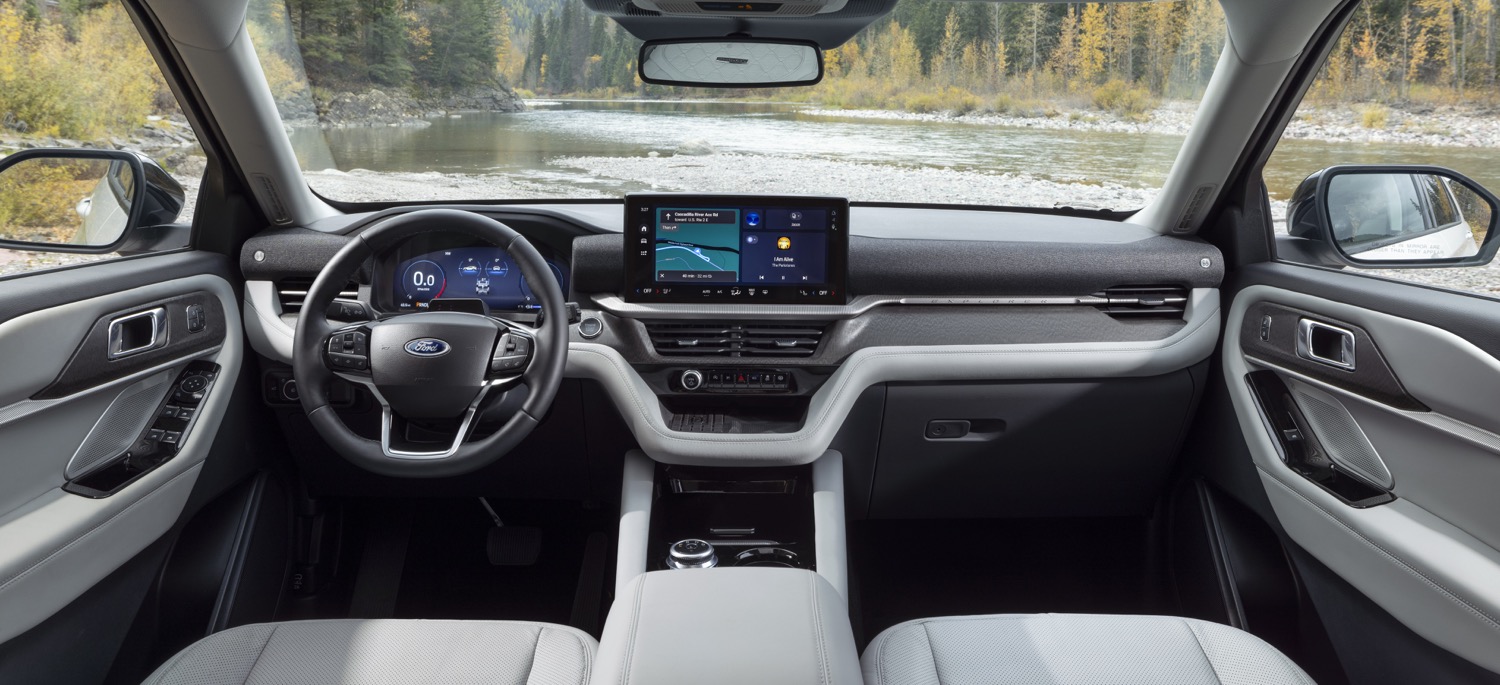
Navigating the Future: A Deep Dive into the 2025 Ford Explorer’s Navigation System
The Ford Explorer, a mainstay of the SUV market, is set to receive a significant technological upgrade in 2025, with the introduction of a cutting-edge navigation system. This system promises to revolutionize the driving experience, offering not only accurate directions but also an intuitive interface, real-time traffic updates, and advanced features that enhance safety and convenience.
This article will delve into the intricacies of the 2025 Ford Explorer’s navigation system, exploring its features, functionalities, and the potential impact it will have on the driving experience.
A Symphony of Technology:
The 2025 Ford Explorer’s navigation system is built upon a foundation of cutting-edge technologies, including:
- High-Resolution 3D Mapping: The system utilizes highly detailed 3D maps that provide a realistic representation of the driving environment. This allows for a more immersive and intuitive navigation experience, making it easier for drivers to understand their surroundings and plan their routes.
- Cloud-Based Navigation: The system is seamlessly integrated with the cloud, providing access to real-time traffic information, weather updates, and other relevant data. This ensures that drivers always have the most up-to-date information available, allowing them to make informed decisions about their routes and avoid potential delays.
- Advanced Voice Recognition: The system features a sophisticated voice recognition engine that allows drivers to interact with the system hands-free. This enables drivers to navigate, make calls, and access entertainment features without taking their hands off the wheel, enhancing safety and convenience.
- Augmented Reality Navigation: The system seamlessly blends the real world with virtual information, overlaying directions and important points of interest directly onto the driver’s view of the road. This innovative technology makes navigation intuitive and effortless, eliminating the need for drivers to constantly refer to a screen.
- Predictive Navigation: The system analyzes historical traffic patterns, weather conditions, and other relevant data to anticipate potential delays and suggest optimal routes. This proactive approach helps drivers avoid congestion and reach their destinations on time.
Exploring the Features:
The 2025 Ford Explorer’s navigation system boasts a wide range of features designed to enhance the driving experience:
- Route Planning and Optimization: The system offers multiple route options, considering factors like traffic conditions, distance, and estimated travel time. Drivers can choose the route that best suits their needs and preferences.
- Point of Interest (POI) Search: The system provides access to a comprehensive database of points of interest, including restaurants, gas stations, hotels, and attractions. Drivers can easily search for specific locations or browse categories to find what they need.
- Real-Time Traffic Updates: The system constantly monitors traffic conditions and provides real-time updates on potential delays, accidents, and road closures. This information allows drivers to avoid congestion and choose alternative routes if necessary.
- Parking Assistance: The system assists drivers in finding available parking spaces, providing directions and guidance to the nearest parking lot or garage. It can even help drivers reserve parking spots in advance, saving time and frustration.
- Lane Guidance and Departure Warning: The system uses lane departure warnings and lane guidance features to help drivers stay in their lanes, reducing the risk of accidents.
- Speed Limit and Traffic Sign Recognition: The system automatically detects and displays speed limits and traffic signs, ensuring drivers are aware of the rules of the road.
- Emergency Assistance: In case of an emergency, the system can automatically contact emergency services and provide the vehicle’s location. This feature can be a lifesaver in critical situations.
- Connected Services: The system integrates with Ford’s suite of connected services, providing access to features like remote start, vehicle diagnostics, and over-the-air software updates.
The Impact on the Driving Experience:
The 2025 Ford Explorer’s navigation system is poised to significantly impact the driving experience, offering a multitude of benefits:
- Enhanced Safety: The system’s advanced features, such as lane departure warnings, speed limit recognition, and emergency assistance, contribute to a safer driving environment.
- Increased Convenience: The system’s intuitive interface, voice recognition capabilities, and connected services make driving more convenient and enjoyable.
- Reduced Stress: The system’s ability to optimize routes, provide real-time traffic updates, and assist with parking reduces stress and anxiety associated with driving.
- Improved Efficiency: The system’s predictive navigation and traffic monitoring features help drivers optimize their routes and avoid unnecessary delays, improving fuel efficiency and saving time.
- Personalized Experience: The system can be customized to suit individual preferences, allowing drivers to personalize their navigation experience.
A Glimpse into the Future:
The 2025 Ford Explorer’s navigation system represents a significant leap forward in automotive technology, showcasing the potential for innovation to enhance the driving experience. This system is not just about getting from point A to point B; it’s about creating a safer, more convenient, and more enjoyable driving experience for everyone.
Beyond the Basics:
The 2025 Ford Explorer’s navigation system is more than just a simple mapping tool. It’s a sophisticated platform that connects drivers to a vast network of information and services. This platform is constantly evolving, with new features and functionalities being added regularly.
Future Developments:
The future of automotive navigation is bright, with exciting developments on the horizon. Some potential advancements include:
- Autonomous Navigation: As autonomous driving technology advances, navigation systems will play a crucial role in guiding self-driving vehicles.
- Augmented Reality Integration: Augmented reality technology will continue to evolve, providing drivers with even more immersive and informative navigation experiences.
- Personalized Recommendations: Navigation systems will leverage data analytics to provide personalized recommendations for restaurants, attractions, and other points of interest based on individual preferences.
- Integration with Smart Homes: Navigation systems will be integrated with smart home devices, allowing drivers to control their home environments remotely while on the road.
- Advanced Traffic Management: Navigation systems will play a crucial role in managing traffic flow, optimizing routes, and reducing congestion.
Conclusion:
The 2025 Ford Explorer’s navigation system is a testament to the rapid pace of technological advancement in the automotive industry. It’s a system that not only provides accurate directions but also enhances safety, convenience, and efficiency, transforming the driving experience. As technology continues to evolve, we can expect even more innovative features and functionalities to be incorporated into future navigation systems, making driving safer, smarter, and more enjoyable for everyone.









